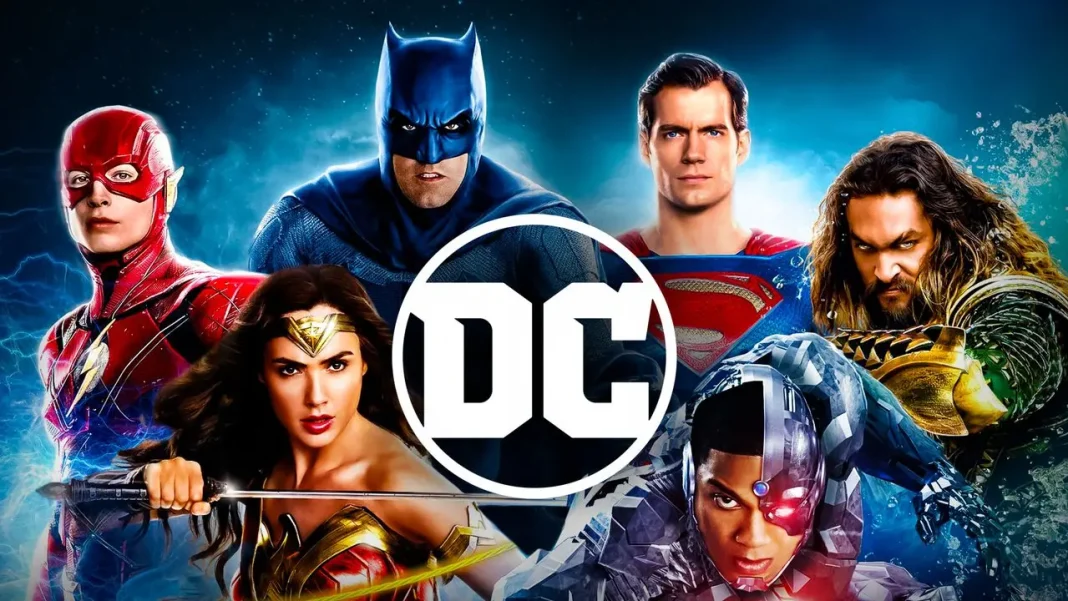In the tumultuous landscape of superhero cinema, the DC Extended Universe (DCEU) rose like a phoenix, captivating audiences for a decade with its highs and lows. As 2023 marked the unfortunate demise of the franchise with “Aquaman and the Lost Kingdom,” it’s essential to reflect on the legacy of the DCEU, acknowledging its achievements and contemplating the lessons it leaves behind.
1. Visual Grandeur: A Snyder Legacy
Amidst the criticisms often hurled at the Marvel Cinematic Universe (MCU), one recurring complaint was its lacklustre visuals. The DCEU, particularly under Zack Snyder’s direction, debunked this notion. From Superman’s triumphant return to the iconic clash in “Batman v Superman: Dawn of Justice,” Snyder’s films embraced the grandeur of superhero storytelling. It’s a visual feast that not only entertains but also pays homage to the comic book medium’s dynamism. As the DCEU bids adieu, one hopes that this commitment to visual excellence will be carried forward by the likes of James Gunn and Peter Safran.
2. Embracing the Silly: A Whimsical Turn
Despite the reputation for a sombre tone, the DCEU wasn’t afraid to showcase the playful side of superheroes. Scenes like the Flash catching hot dogs with superspeed or Aquaman’s clash with Orm demonstrated that even the most serious characters can embrace the inherent goofiness of the superhero premise. This willingness to be silly, exemplified by the charismatic Shazam and Wonder Woman’s sword-wielding adventures, added a layer of richness to the DCEU that should be cherished and emulated.
3. Silly Superheroics with Substance: Social Commentary in The Suicide Squad
James Gunn’s “The Suicide Squad” stands out not just for its ensemble of Z-list characters but for its sharp social commentary. The absurdity of Peacemaker and Bloodsport competing in over-the-top kills turns into a sobering satire of global politics. The film, along with others like “Birds of Prey” and “Blue Beetle,” seamlessly weaves real-world implications into its superhero narratives, proving that even the most fantastical stories can carry meaningful messages without sacrificing entertainment.
4. Harley Quinn’s Evolution: From Victim to Chaotic Antihero
Margot Robbie’s portrayal of Harley Quinn in the DCEU brought a refreshing complexity to the character. Moving beyond the initial portrayal as Joker’s desperate girlfriend, Robbie’s Harley evolved into a rich agent of chaos. From forming a community of women in “Birds of Prey” to the captivating killer princess sequence in “The Suicide Squad,” Harley Quinn emerged as a complex antihero, showcasing the potential for depth in female characters within the superhero genre.
5. Wonder Woman’s Optimism: A Beacon of Hope
In a universe often characterized by cynicism, Wonder Woman emerged as a beacon of optimism. Gal Gadot’s portrayal of Diana, especially in the iconic No Man’s Land sequence, showcased a superhero who believes in a better world and refuses to accept anything less. This optimistic perspective, reminiscent of the Christopher Reeve Superman era, injected a sense of wholesomeness into the DCEU that resonated with audiences.
6. Heroes Need a Supporting Cast: Grounded in Community
The DCEU excelled in grounding its heroes in a community, emphasizing the importance of family and friends. “Shazam!” highlighted this approach as Billy Batson found a home with foster parents, adding depth to his character beyond superhero tropes. Unlike the solitary quests often seen in the MCU, the DCEU allowed regular people to be part of the superhero narrative, showcasing why they matter to the heroes.
7. Musical Identity: Hans Zimmer’s Superman Score
The DCEU departed from tradition by entrusting Hans Zimmer to create a new musical identity for Superman in “Man of Steel.” While Zimmer’s score maintained some elements of his previous work, it provided a fresh take that matched the world-weary Superman portrayed by Snyder. The score, with its epic tones and hopeful melodies, emphasized that it’s not just Superman’s powers but his inherent goodness that defines him—a musical departure that added depth to the character.
8. Filmmakers Matter: Embracing Diversity in Vision
Unlike the MCU’s centralized storytelling, the DCEU embraced diversity in directorial voices. Directors like David F. Sandburg, Angel Manuel Soto, and Cathy Yan brought their unique perspectives to the films, creating a tapestry of interpretations for established characters. While not every approach resonated with audiences, the DCEU showcased the importance of letting directors imprint their individual voices onto the superhero narrative.
As the DCEU concludes its chapter, it leaves behind a legacy of highs and lessons for the superhero genre. While its fate may be sealed, the hope is that the positive aspects highlighted here endure, influencing the future of superhero cinema under the stewardship of James Gunn, Peter Safran, and beyond. The DCEU may be gone, but its impact on the genre remains, challenging future filmmakers to learn and evolve from its triumphs and tribulations.


